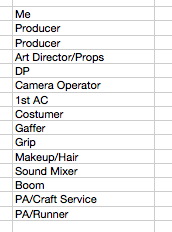Like a good Onion article, Heather Havrilesky’s “Five Super-Easy Tips For Dealing with the Apocalypse!” pushes beyond the initial joke to an [even darker truth](http://www.theawl.com/2013/06/five-super-easy-tips-for-dealing-with-the-apocalypse-from-our-partners-at-living-lady-magazine):
> **Consider all the terrible stuff that will never happen now.** It’s never a good idea to fill your head with countless negative possibilities—unless you and everyone else in your life is about to get snuffed out like a light! Now is the time to unleash all of your worries about the future like never before. Since you have no future, that means that you won’t get cancer or die in a plane crash or get maimed in a freak accident like you always suspected. You also won’t get fired from your job, you won’t lose your house to bankruptcy, and your dog won’t die of some terrible dog disease (You just killed her to make dog jerky, remember? Phew!).
That could have been a speech in [The Remnants](http://vimeo.com/2755105).
Oh, alt-universe. Sometimes I miss you.
 All in, the show cost $25,003. Depending on your perspective, that’s either expensive for a web show or mind-blowingly cheap for television show. We paid for locations, permits and other details a scrappier web show would just ignore. And we had more crew. Some web shows are literally just the actors and a guy holding the camera. We had 15 people. We were more like an indie feature, but without trucks or trailers.
All in, the show cost $25,003. Depending on your perspective, that’s either expensive for a web show or mind-blowingly cheap for television show. We paid for locations, permits and other details a scrappier web show would just ignore. And we had more crew. Some web shows are literally just the actors and a guy holding the camera. We had 15 people. We were more like an indie feature, but without trucks or trailers.